Listen to review bodies on public sector pay, says Gove
- Published
Gove's quick-fire answers on the Andrew Marr show - Brexit and his return to the cabinet
The government should listen to review bodies' recommendations for public sector pay, Michael Gove has said.
His comments come as the prime minister and chancellor face increasing pressure from ministers and backbenchers to end the 1% public sector pay cap.
The environment secretary did not call directly for the cap to be lifted but said ministers should respect the "integrity" of the pay review process.
Labour said it would allow the review bodies to award "a fair pay rise".
Pay rises for five million public sector workers are set by independent pay review bodies, but have effectively been capped at 1% since 2013, before which there was a two-year freeze on pay for all but the lowest-paid workers.
The Conservatives went into the election pledging to maintain the cap until 2020, but some MPs are now calling for a rethink after the party lost its majority.
Two review bodies dealing with the pay of police and teachers will make recommendations later this month, and there are growing expectations that one or both could call for rises that exceed the government's cap.
Impact on recruitment
The cabinet is split on the principle of scrapping the cap, but it could be dismantled bit by bit.
"I think that we should listen to the pay review bodies who govern each individual area of public sector pay," Mr Gove told the BBC's Andrew Marr Show.
The presenter suggested the cap, imposed by the chancellor, set the parameters for the bodies' recommendations.
"They take account of that but they also take account of other questions as well, including the number of people who enter the profession, whether we need to have an increase in pay in order to ensure we get the very best people into the profession," Mr Gove said.
"These pay review bodies have been set up in order to ensure that we can have authoritative advice on what's required, in order to ensure that the public services on which we rely are effectively staffed and the people within them are effectively supported."
Asked what he personally thought about scrapping the pay cap, he said: "I am not an individual - I am a member of a collective team."
Mr Gove, a former education secretary, has told the Sunday Times, external that when the review bodies made recommendations on school teachers' pay, "I think I always accepted them."

Analysis
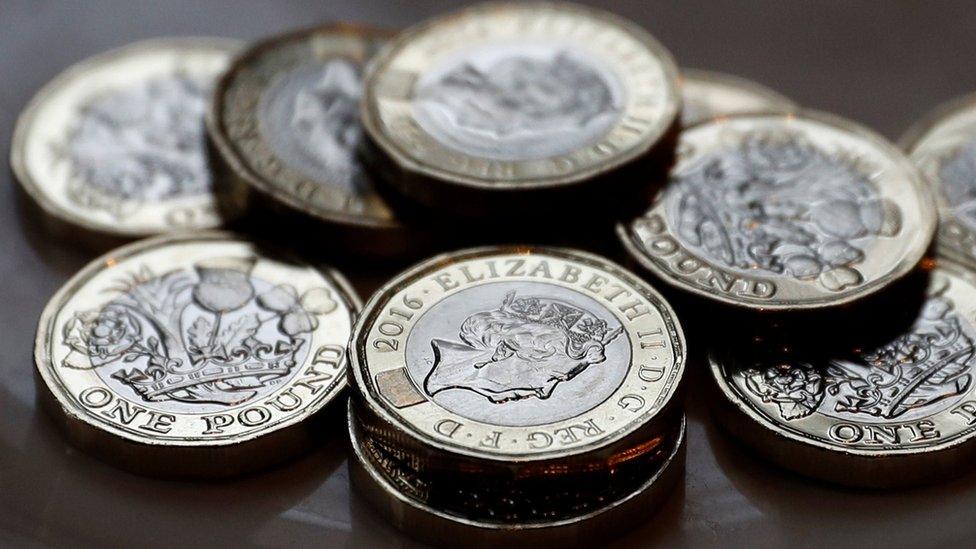
By BBC political correspondent Iain Watson
Privately, ministers believe it is perfectly possible that at least some of the pay review bodies - which also cover health service workers, prison officers and senior public servants - will call for average increases of more than 1%.
A government minister with good links to Downing Street told the BBC that review body recommendations would be honoured, even if this breached the current pay cap.
But No 10 insists that ministers will decide whether to accept recommendations on a case-by-case basis.
So while the pay cap may not be abolished for every public sector employee all at once, it is possible that its erosion will begin soon.

Other Sunday newspapers also reported on a growing revolt within the Conservative Party over its approach to austerity and public spending.
The Observer says there is a "chorus of demands", external from within the party for a radical overhaul of state funding, with cabinet ministers and senior MPs calling for more money for NHS workers and schools, as well as a "national debate" on tuition fees.
According to the paper, Health Secretary Jeremy Hunt and Education Secretary Justine Greening are lobbying for an easing of austerity.
The paper says the pressure to abandon austerity puts Chancellor Philip Hammond under pressure to consider raising taxes to fund any extra public spending.
The Telegraph, external, meanwhile, reports that Ms Greening has told Prime Minister Theresa May she wants the government to abandon plans to cut per pupil funding over the coming years.
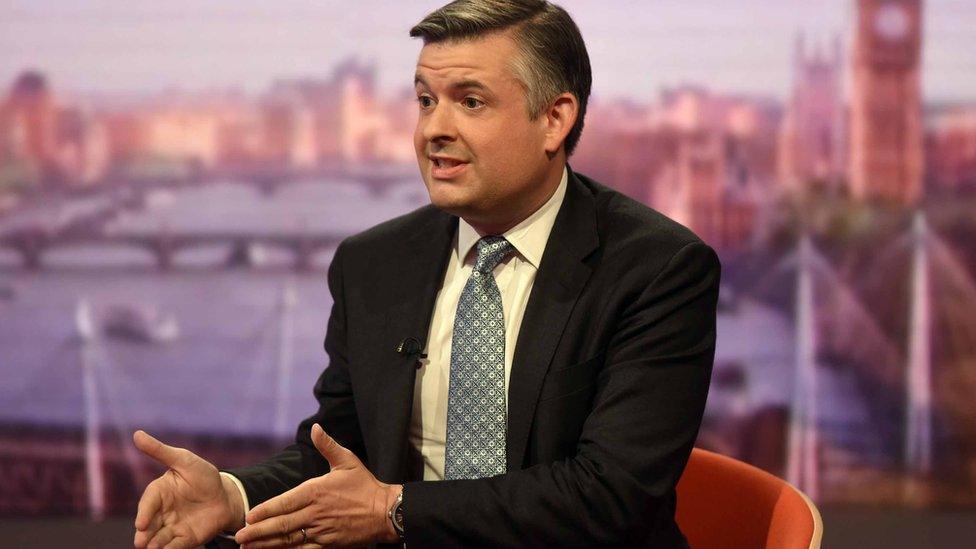
Labour's Jonathan Ashworth said the Tories were in "turmoil"
The paper says it is understood the education secretary wants a public statement within weeks outlining the change in direction so that schools know the funding they are to receive before they break up for the summer holidays.
According to the paper, the proposal would mean spending an extra £1.2bn by 2022.
Mr Gove said he would not "second guess" the current education secretary but Tory backbencher Heidi Allen, also appearing on Andrew Marr, said it was "great to see Justine coming out and saying: 'Yes, there needs to be more money for schools.'"
Shadow health secretary Jonathan Ashworth said the reports revealed "turmoil" in the Conservative Party.
"They're saying 'Wait for the pay review bodies,' even though they're the ones insisting on a 1% cap," the Labour frontbencher told Andrew Marr.
"We're saying to the pay review bodies: 'Get rid of the 1% cap and give a fair pay rise.'"
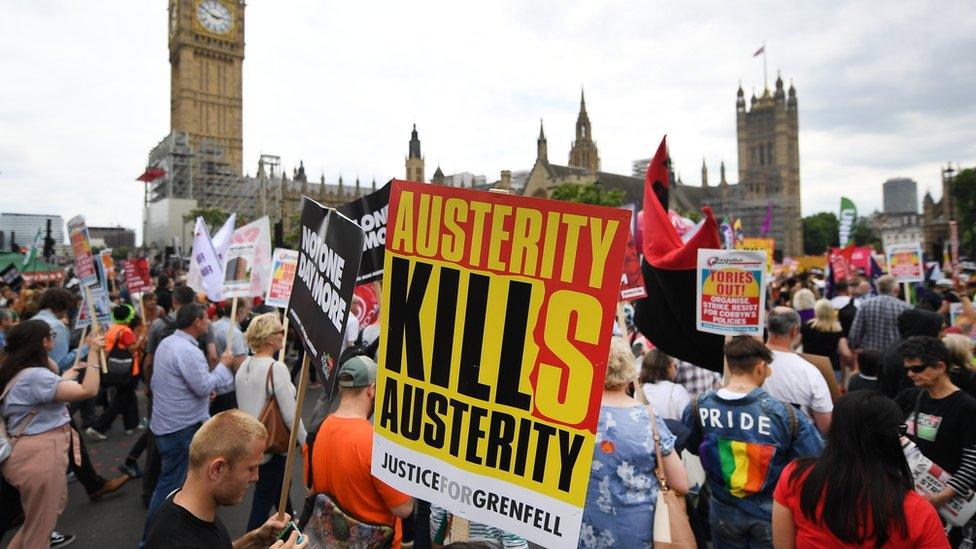
Thousands demonstrated against austerity in central London on Saturday
Asked what level Labour thought was fair, he said the review bodies "should consider" a pay rise in line with the rise in average earnings across the economy.
"Clearly, they are not going to be able to overturn the 14% loss that NHS workers have had over seven years but they have to come up with responsible recommendations, which we would accept."
Mr Ashworth suggested that some of the cost of the pay awards in the NHS could be offset by savings in the amount the health service paid to agency workers, due to a shortage of full-time staff.
Last week a Labour attempt to scrap the 1% cap was defeated in Parliament.
But the pressure to ease austerity has intensified since June's general election, with a number of backbench Tory MPs arguing that it cost the party votes and contributed to the loss of its majority.
On Saturday thousands of people gathered in central London for a demonstration against austerity that was addressed by Labour leader Jeremy Corbyn.


- Published1 July 2017
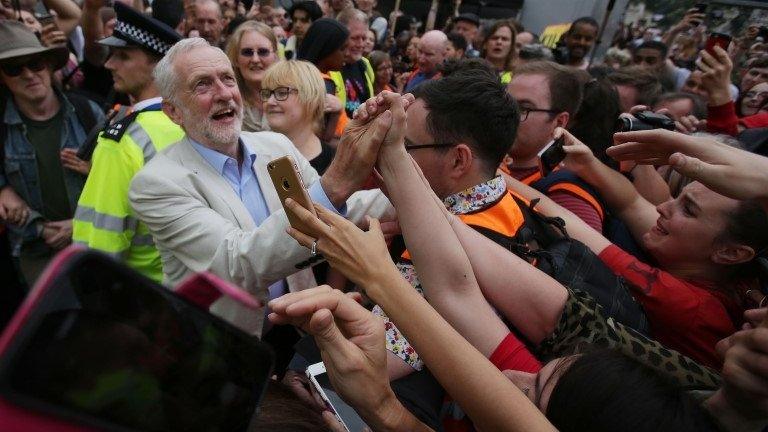
- Published28 June 2017
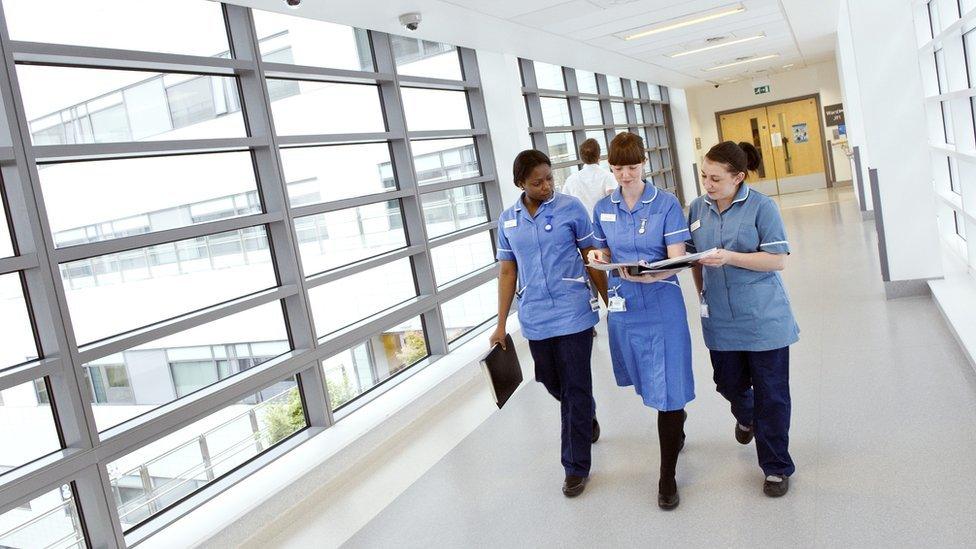
- Published13 June 2017
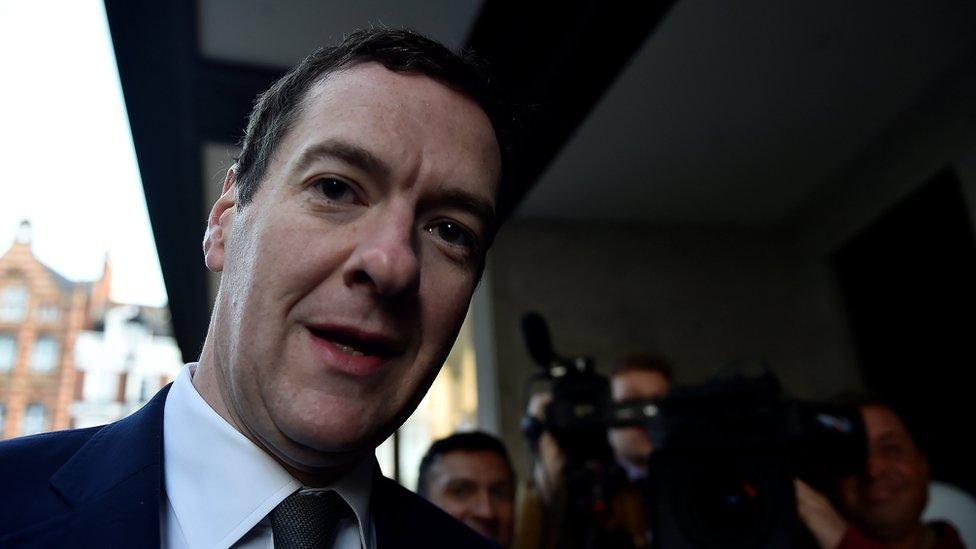
- Published9 June 2017